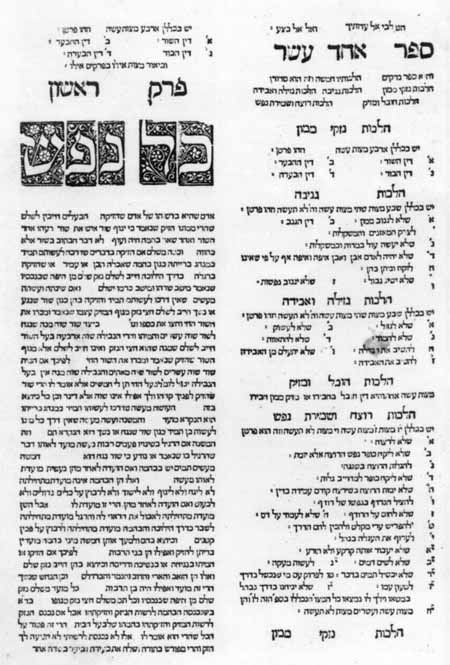The Work of Maimonides: The Mishneh Torah
Joseph Ibn Gabir, who while knowing Arabic was able to study the Commentary on the Mishnah, but knowing no Hebrew was unable to read the Mishneh Torah, suggested to Maimonides that he produce an Arabic edition of it. Maimonides responded:
If you want to study my work you will have to learn Hebrew little by little. It is not so difficult, as the book is written in an easy style ... I do not intend to produce an Arabic edition ... as the work would lose its specific color. How could I do this when I would like to translate my Arabic writings into the holy tongue!
Maimonides had a profound love for the Hebrew language, a special affection for the one great work he wrote in it, and an unbounded regard for its subject, the law. The Mishneh Torah is his magnum opus. Except for the first printing in Rome, of which only a few copies are extant, the Library has virtually every important edition.
 |
The Mishneh Torah Soncino, 1490, edition is the second production of the press of Gershom Soncino. He writes that scholars and leaders implored him to publish Maimonides's great work, offering him help and protection. "So I decided to search the great libraries for a fine manuscript copy ... May the Blessed One in his great mercies, help me complete this work." The work was completed "on the first day of Nissan, 5250, in Soncino, in Lombardy, under the sovereign, the Duke of Milan. Praise and glory to God." The Library's very fine copies preserve the beauty and excellence of the typographical artistry of the master printer.
Sources: Abraham J. Karp, From the Ends of the Earth: Judaic Treasures of the Library of Congress, (DC: Library of Congress, 1991).


